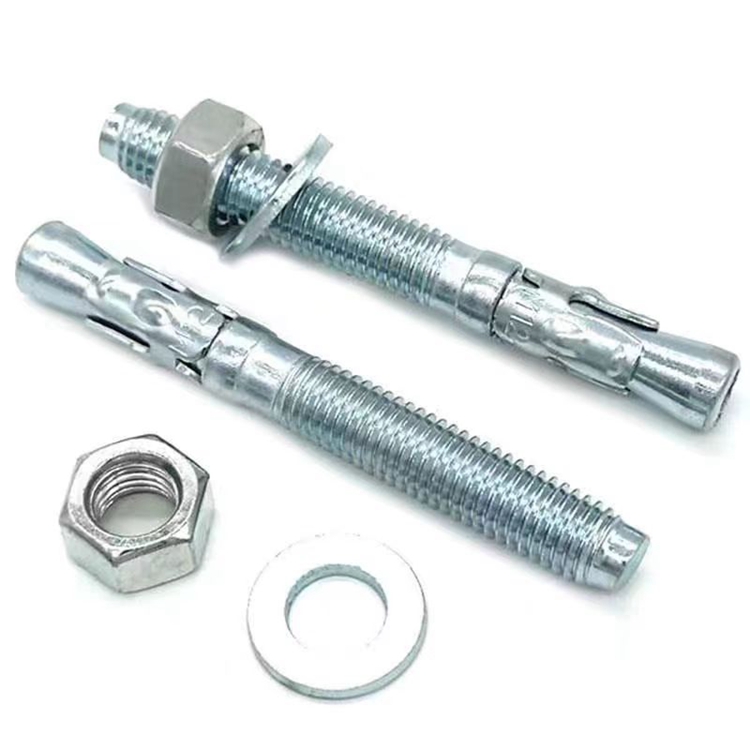Choosing the Right Flat Washers for Your Project Needs
Nov . 30, 2024 02:25 Back to list
Choosing the Right Flat Washers for Your Project Needs
The Essential Guide to Buying Flat Washers
Flat washers are an essential component in various mechanical applications, providing a simple yet effective means of distributing the load of a threaded fastener, such as a bolt or nut. Whether you are undertaking a small DIY project at home or managing a large manufacturing operation, understanding how to buy flat washers is crucial to ensure efficiency, safety, and durability in your applications.
What is a Flat Washer?
A flat washer is typically a disk-shaped piece of metal or plastic with a central hole that allows it to fit around a screw or bolt. The primary purpose of a flat washer is to provide a smooth bearing surface for the fastener, help prevent damage to the surface being fastened, and distribute the load to prevent a bolt or nut from pulling through the material. Flat washers are commonly used in furniture assembly, construction, and automotive applications.
Understanding the Types of Flat Washers
Before diving into the buying process, it’s essential to understand the different types of flat washers available. The most common types include
1. Standard Flat Washers These are the most basic type of flat washer and can be made of various materials like steel, stainless steel, or nylon, depending on the application requirements.
2. Lock Washers Designed to prevent loosening from vibrations, lock washers have a unique shape that allows them to grip both the fastener and the surface.
3. Fender Washers With a larger outer diameter compared to standard flat washers, these are useful in applications where greater load distribution is needed, such as on thin materials.
4. Spacer Washers These washers create a gap between two components, often necessary for achieving proper alignment or clearance.
Choosing the Right Flat Washer
buy flat washer

When it comes time to buy flat washers, several factors need to be considered to ensure you choose the right type for your project.
1. Material The material of the washer affects its strength, corrosion resistance, and suitability for specific environments. For outdoor use or applications exposed to moisture, stainless steel or coated washers are preferable. For standard indoor applications, regular steel might suffice.
2. Size Flat washers come in various diameters and thicknesses. Ensure you select a washer with a hole diameter that matches the bolt size you are using. It's also critical to choose a washer that can adequately support the load applied.
3. Load Capacity Assessing the load requirements is vital. If your application involves heavy loads, opting for thicker and larger washers can distribute the weight more effectively.
4. Quantity Depending on the scope of your project, consider purchasing flat washers in bulk. Many suppliers offer discounts for larger quantities, which can save you money in the long run.
5. Standards and Specifications Familiarize yourself with industry standards, such as ASTM or ISO, which dictate the specifications for flat washers. Using washers that meet these standards ensures reliability and quality.
Where to Buy Flat Washers
Flat washers can be purchased from a wide range of sources, including hardware stores, specialty fastener suppliers, and online marketplaces. Each option offers different advantages. Local hardware stores provide immediate access, whereas online retailers may offer a broader selection and competitive pricing. Regardless of where you buy, always check for reviews and ratings to ensure you are getting quality products.
Conclusion
Buying flat washers may seem like a straightforward task, but understanding the various types, materials, and specifications is vital for ensuring the success of your project. Taking the time to assess your needs will not only help you select the right washer but also enhance the overall quality and safety of your mechanical assemblies. Whether for DIY projects, renovations, or industrial applications, the right flat washers will support your efforts and ensure longevity in your work.
Latest news
-
High-Quality Panel Stud Bolt Reliable Panel Stud Bolt Factory & Suppliers
NewsJul.08,2025
-
High-Precision Fine Thread Locknuts Manufacturer & Supplier Custom Solutions
NewsJul.08,2025
-
PH Imperial Stud Bolt – High Strength Fasteners from Leading Supplier & Factory
NewsJul.07,2025
-
High-Quality Allen Wrench Bolts Leading Factory, Company & Suppliers
NewsJul.07,2025
-
Wholesale Ball Stud Bolt - High Quality Supplier & Factory Price Reliable Wholesale Ball Stud Bolt Company
NewsJul.06,2025
-
High-Strength Alloy Bolts Manufacturer & Supplier Quality Alloy Fasteners Factory
NewsJul.06,2025
